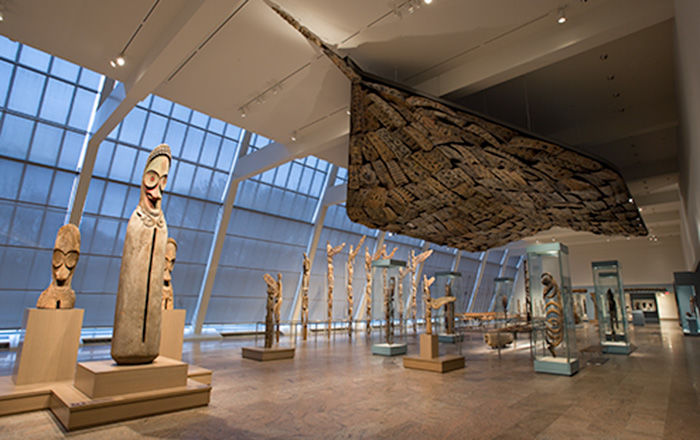Water Drum
Djiki Papua New Guinea
Not on view
The Iatmul people, who live along the middle reaches of the Sepik River, are among the most prolific and accomplished sculptors in New Guinea. Iatmul religion was complex and included a diversity of rites and ceremonies devoted to ancestors, spirits, and other supernatural beings. Almost every important occasion had ceremonial aspects, and some, such as male initiations, lasted for months. Iatmul ceremonies often included both secret rites known only to men and public performances in which women and children participated. In the past, warfare and headhunting were integral elements of religious life.
The Iatmul were, and remain, vigorous artists and builders. Their most impressive architectural achievements were their large, splendidly decorated men’s ceremonial houses, which were the center of male religious life. Ceremonial performances entailed the use of masks, sacred images of ancestors and spirits, and a range of sacred musical instruments, including flutes, slit gongs, and drums. Stools incorporating ancestral figures formed the centerpieces for ceremonial debates. Almost all utilitarian objects also were carved and painted.
#1180. Kids: Water Drum
Due to rights restrictions, this image cannot be enlarged, viewed at full screen, or downloaded.


